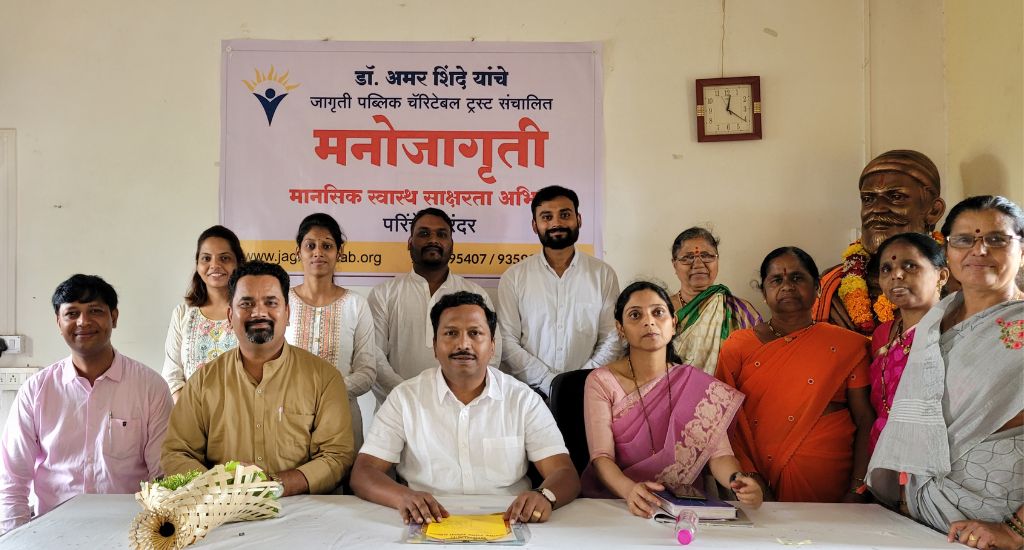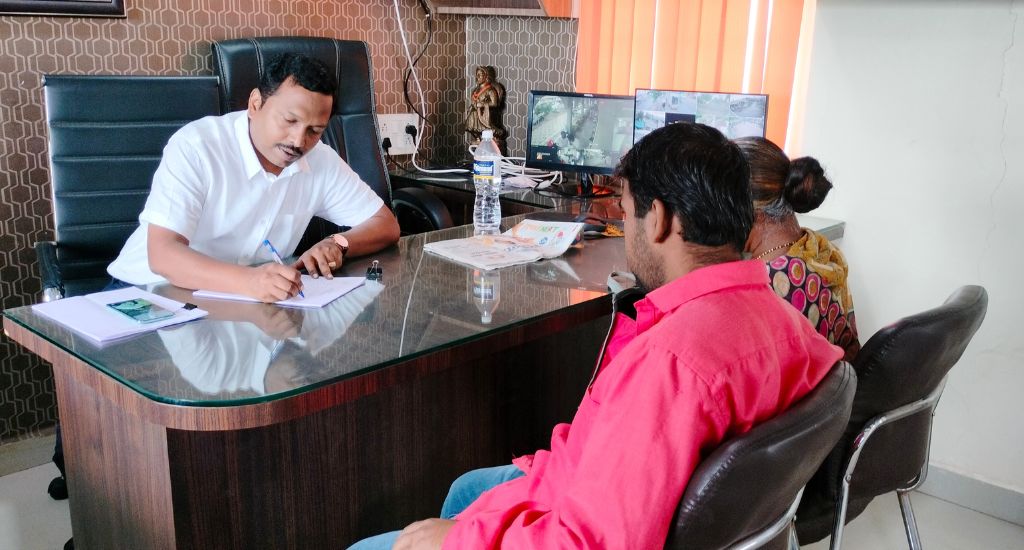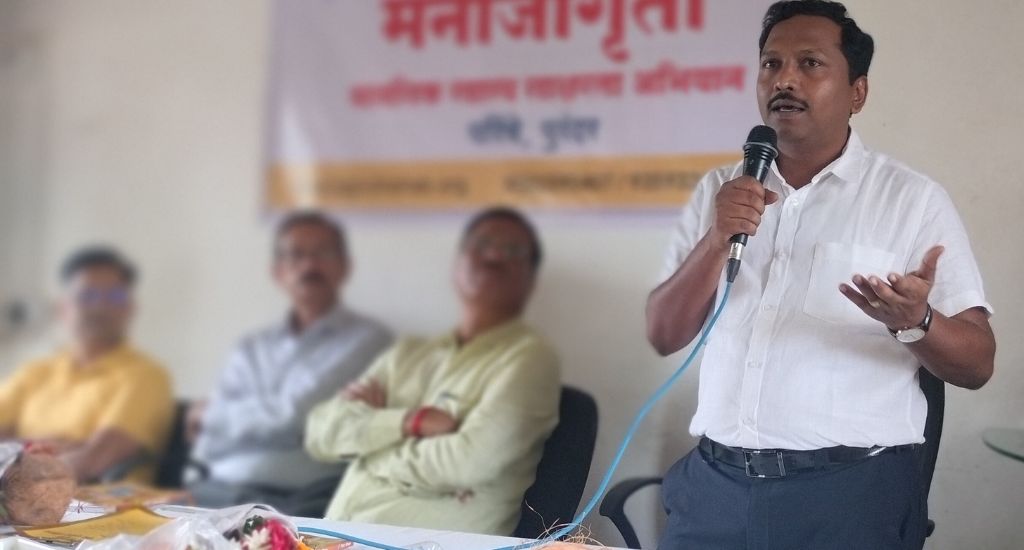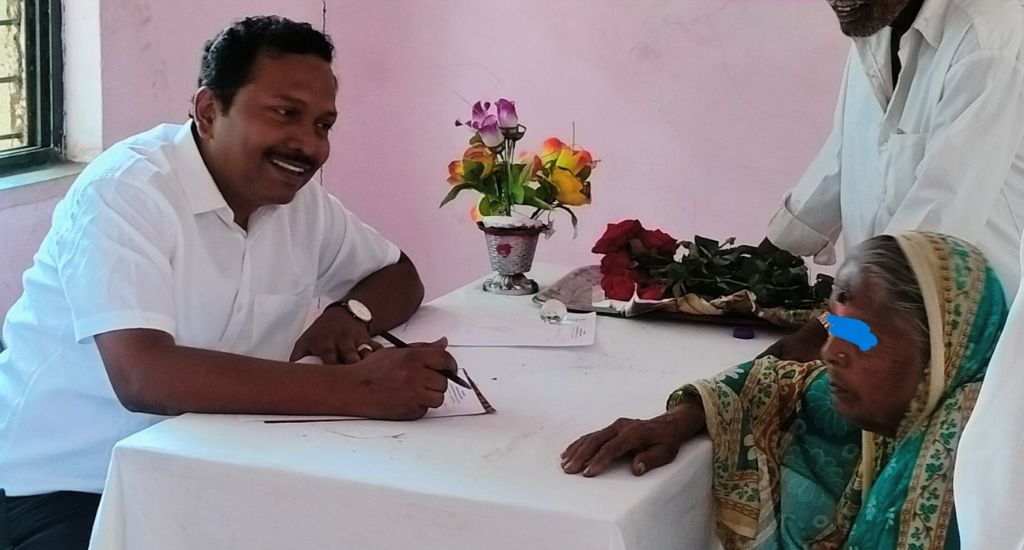
Filling mental health treatment gap in villages
Mental illnesses go undetected and untreated in villages, due to stigma and paucity of mental health professionals. A Pune-based psychiatrist and his team are trying to change that.

Mental illnesses go undetected and untreated in villages, due to stigma and paucity of mental health professionals. A Pune-based psychiatrist and his team are trying to change that.
Mental health is a critical aspect of overall wellbeing. According to a global burden of disease survey published in the Lancet journal, one in seven Indians were affected by mental disorders of varying severity in 2017. Suicide stands as the leading cause of death among young adults aged 15 to 29 years.
In rural areas, the challenge lies in the limited access to mental health care, resulting in a substantial treatment gap, with only 10-20 percent of those in need receiving appropriate treatment. This gap is exacerbated by factors such as a shortage of mental health professionals, lack of access to services and pervasive stigma.
To address this issue, Pune-based psychiatrist Amar Shinde has initiated outreach services in Baramati and Purandar blocks of Pune district, to provide care to individuals who cannot easily access and afford urban treatment centres.

Shinde believes that “by fostering a culture of mental health awareness and support, we can promote empathy within communities”.
With this thought, he started the first Jagruti rehabilitation centre in 2008 with 10 beds. Today these centres have 600 beds across six cities.
In 2014, Shinde established Jagruti Public Charitable Trust to spread awareness about mental health in communities. The trust then launched Manojagruti, an initiative to promote basic mental health literacy, in Parinche village of Purandar and Wanewadi village in Baramati blocks in Pune district.
As part of Manojagruti, six women health workers who were previously working for community health promotion were trained in Parinche, located 50 km from Pune, to serve as manosathis and provide mental health outreach services.
Also Read: ‘Stigma, isolation aggravate mental health problems’
Manosathis list patients with severe mental disorders (which are known in the hamlets), map their treatment histories and engage with caretakers to bring them to the Manojagruti outpatient department (OPD) that operates once a month at the gram panchayat hall.
Almost one fifth of the patients with severe mental illnesses in Parinche region have been confined at home for years. Manosathis find it difficult to bring them to the OPD. So the Manojagruti team has been conducting home visits for such patients along with a psychiatrist, so that treatment can be initiated.

Further, systematic engagement with schools and junior colleges spreads basic mental health literacy. The programme is based on WHO’s framework of Health Promoting Schools, that focuses on students, staff and parents.
Radha* from Parinche village was diagnosed as a schizophrenic a few years ago. Shortly after that, her husband abandoned her, and Radha returned to stay with her mother. She relied on the monthly psychiatric OPD run under the government programme at the block headquarters located 22 km away.
However, she found it hard to travel the distance regularly to seek treatment. As her illness worsened, she started wandering about and became aggressive. She threw stones at villagers and became a subject of ridicule.
When the Manojagruti programme was started at Parinche in July 2023, Radha came under the care of Shide and Pushpatai, who works as a manosathi in the village. Pushpatai encouraged Radha’s mother to monitor her medication, and made follow-up visits to check about the side-effects to the medicine.
Also Read: Kerala volunteers improve life of mental health patients
As Radha’s condition improved, her mother married her off after just three months of treatment. Pushpatai then contacted Radha’s husband and informed him about her disease and treatment course. The couple then came for the monthly follow-up at Manojagruti OPD. They are now in regular touch with Pushpatai.
Wanewadi’s story is different. Attached to a cooperative sugar factory, it is one of the most resourceful villages of Baramati block. Private clinics have flourished in the area. However, it has been a struggle to make people understand Manojagruti’s mental health literacy campaign. The Manojagruti team works with accredited social health activists (ASHAs) in the area with permission from the health department.
In Wanewadi, it was observed that many elderly persons were experiencing forgetfulness. After assessment, three of them were identified with early symptoms of dementia. They are now receiving care and support.
Hasan Shaikh*, 82, sought consultation in Wanewadi about recent memory loss and a sense of hopelessness. Upon psychiatric evaluation, he was diagnosed with an early stage of dementia and mild depression.
He was provided with medicine. As he lived alone after his wife’s death a couple of years ago, and had difficulty recalling if he took his medicine on a given day, he requested the assistance of manosathis in keeping track of his medicine intake.
Over 100 plus patients with various mental illnesses (mild to moderate depression, anxiety, etc.) seek support under Manojagruti, which offers outreach care to a population of 50,000.
Many of the existing patients with severe mental disorders have been treated irregularly, due to treatment costs and lack of access. Despite initial counselling, many patients stop the medication on their own due to initial side effects like drowsiness, nausea, vomiting, etc, and the manosathis learn about it only during home visits.
Also Read: Mental health patients see better days in Jharkhand
Another challenge is addressing the mindset of caregivers in some cases.
“Some caregivers lack optimism about the potential outcome for patients who fall outside the productive age group. Consequently, they opt not to allocate their time and energy towards seeking medical attention for these individuals,” said Shashikala Tai, a manosathi.
When a 37-year-old chronically alcoholic single man in Wanewadi showed symptoms of psychosis, his family was asked to bring him to the monthly OPD and then to send him for one month of rehabilitation to a recognised facility.
His father expressed inability to bear even the subsidised treatment cost, saying, “I hold little hope for him. Even after rehabilitation, I’m uncertain if he’ll quit drinking. I’m not even sure if he will survive for 2-3 years.”
The Manojagruti team is trying for community contribution to initiate his treatment.
The needs for mental health care within the community are often invisible. Also, it’s difficult to understand the treatment gap for mental health services, as many patients receive treatment intermittently, sometimes only when episodes of psychoses become unmanageable. Families consider them unproductive and redundant.

The government has planned to provide mental health services at the block level under a District Mental Health Project, with the help of a psychiatrist. As that may involve travel difficulties, it is important to have a stepped care approach wherein frontline workers can create awareness, list patients, follow up, check if patients adhere to their treatment routine and offer basic counselling. The telemedicine platform set up at recently established Health and Wellness Centres under Ayushman Bharat scheme can be a potential solution.
We need to build an informed, sensitive and literate society on mental health matters so that the village ecosystem can enable care for those who need it the most.
*Names changed to protect privacy.
The lead image shows the Manojagruti team at Parinche village, where they have been offering mental health services. (Photo by Sandeep A. Chavan)
Sandeep A. Chavan is a public health professional and a team member at Manojagruti, Pune.